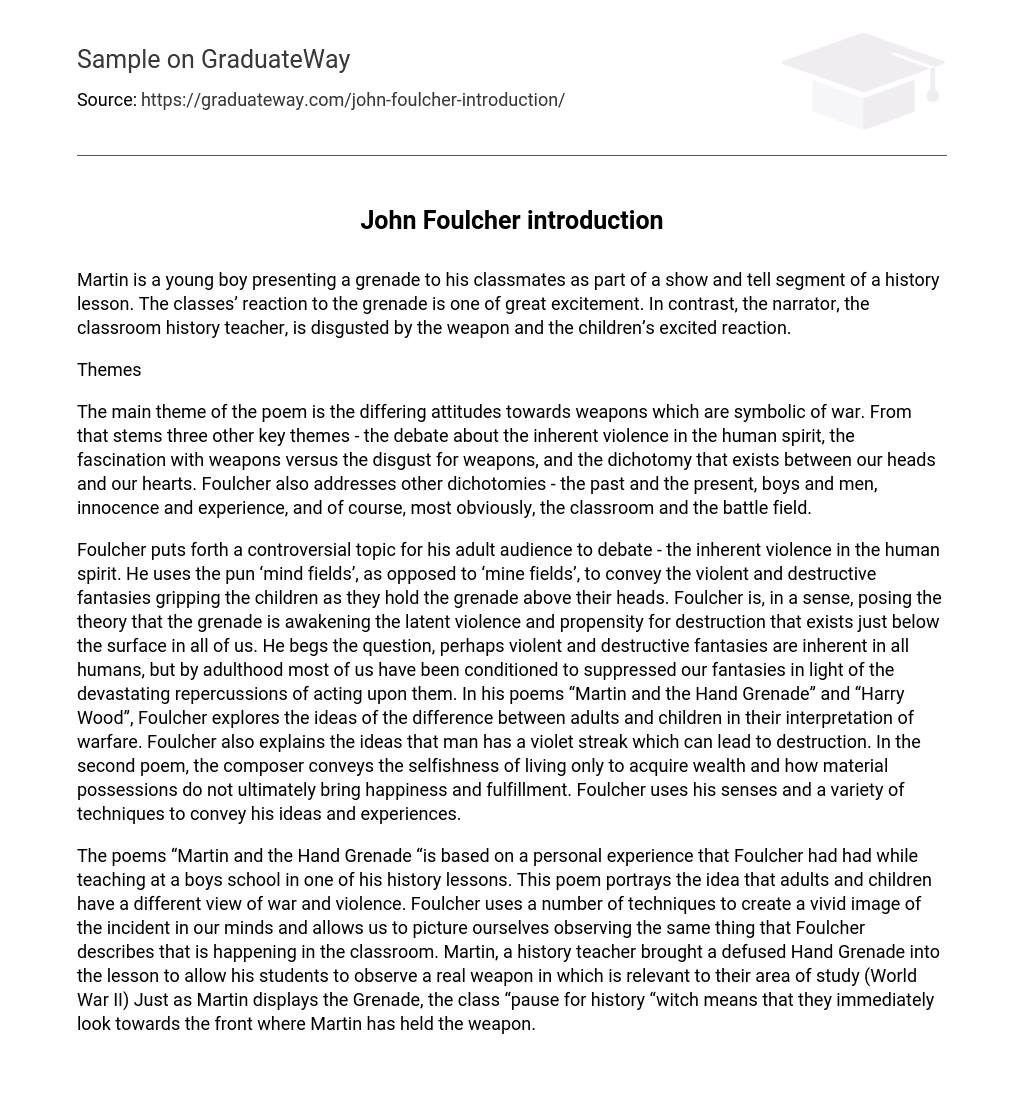Martin, a young boy, brings a grenade to school for a show and tell during a history lesson. His classmates are extremely enthusiastic about the grenade, but the narrator, who is their history teacher, feels disgusted by both the weapon and the children’s reaction.
Themes
The poem’s main theme explores the contrasting attitudes towards weapons as symbols of war. This theme branches out into three other significant themes: the discussion of inherent violence in human nature, the allure versus repulsion towards weapons, and the conflict between logic and emotion. Foulcher also examines various other dichotomies, such as the past and present, boys and men, innocence and experience, and notably, the classroom and the battlefield.
Foulcher presents a provocative topic for his mature audience to discuss – the inherent violence in the human spirit. Through the wordplay of ‘mind fields’ instead of ‘mine fields’, he illustrates the violent and destructive fantasies gripping children who hold a grenade above their heads. Foulcher suggests that the grenade awakens the hidden violence and inclination for destruction that exists within all individuals. He raises the question of whether violent and destructive fantasies are ingrained in humanity, and if societal conditioning suppresses them due to the dire consequences of acting upon them. In his poems “Martin and the Hand Grenade” and “Harry Wood”, Foulcher explores the disparity between adults and children in their perspectives on warfare. Foulcher also elucidates the notion that humans possess a propensity for violence which can lead to devastation. In the second poem, he communicates the egoism of pursuing wealth alone and emphasizes how material possessions do not ultimately bring happiness and fulfillment. Foulcher employs sensory imagery and a variety of techniques to convey his ideas and personal encounters.
The poem “Martin and the Hand Grenade” by Foulcher is inspired by a personal experience during his time as a teacher at a boys school. It explores the differing perspectives on war and violence between adults and children. Foulcher employs various techniques to vividly depict the incident, enabling readers to envision themselves witnessing the event in the classroom. Martin, a history teacher, brings a defused Hand Grenade into the lesson, offering his students an opportunity to examine an actual weapon relevant to their study of World War II. As Martin presents the Grenade, the class collectively pauses to appreciate this historical moment, fixating their gaze on Martin and the weapon he holds.





